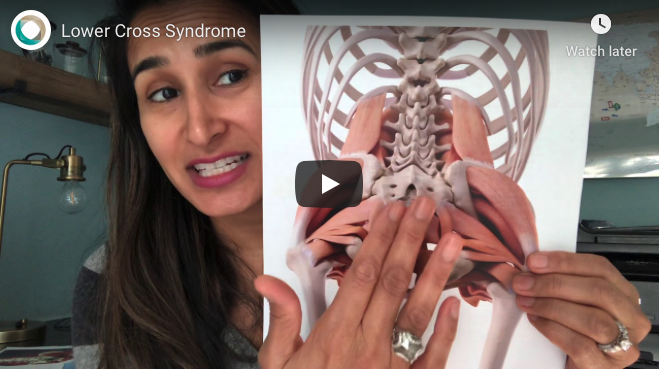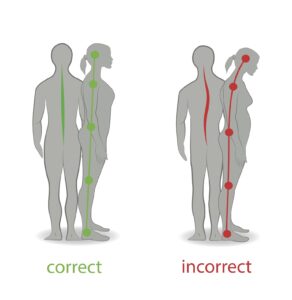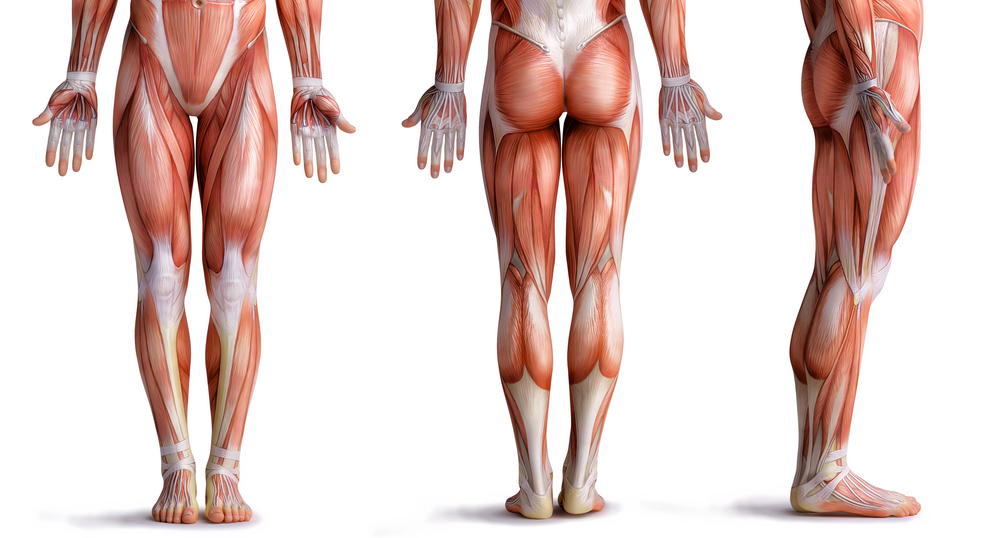
Last week we covered Upper Cross Syndrome and this week, we’re covering Lower Cross Syndrome.
Similar to Upper Cross Syndrome, Lower Cross Syndrome (LCS) is an umbrella term for a pattern of muscular imbalances in the front and back of the lower body. Due to factors such as trauma, injuries, habits, and poor posture, some muscles in the lower body region can become tight and others can become weak creating a crossed pattern in relation to each other. Lower Cross Syndrome can cause symptoms such as: low back pain, leg and hip tightness and/or pain, tingling and numbness throughout the legs and feet due to nerve compression, labral tears, herniated discs, and arthritic changes to the spine.

Just like Upper Cross Syndrome, good posture is key to preventing the symptoms of Lower Cross Syndrome. In good posture, the opening of the ear, shoulder, hip bone, knee joint, and ankle bone all align when the body is viewed from the side. This alignment creates a balance between the structures and muscles at the front and the back of the body. In incorrect posture, the landmarks mentioned above are not in alignment and create imbalances between the front and the back of the body. When the body is in misalignment, some muscles are overworked and become tight and painful, while other muscles become weak and lengthened. Muscular imbalances cause the body to move less efficiently and less efficient movement contributes to more pain, tightening, weakness, and overall dysfunction.

Postural changes can cause several muscle imbalances to occur that are characteristic of LCS. The abdominals become weak due to slouching and the hamstrings become tight to compensate and support the structures at the back of the body. On the other hand, the glutes become weakened and the quadriceps and hip flexor muscles become tight. Weakened glutes are especially problematic because the gluteal muscles function as stabilizers for the hip, low back, and pelvis. Furthermore, muscular imbalances can affect muscles that cross the knee joint, ankle joint, and foot, and also affect muscles that attach to the spine.

When low back muscles and muscles that attach to the spine become weak and lengthened, they affect the way the vertebrae of the spine are stacked. An imbalance in the vertebral column can lead to arthritic and degenerative changes in the spine. Think of the vertebrae of the spine as a stack of plates and in between each plate is a cushioning, sponge-like material known as an intervertebral disc. The “sponge” can wear down in a particular area due to wear and tear and muscular imbalances. When the “sponge” is worn down enough, it can no longer act as a cushion between the plates and this can create anatomical and physiological changes in the spine, eventually leading to nerve compression, radiating pain into legs, and sciatica. In ideal posture, the vertebral “plates” are stacked, the “sponges” are intact, and there are no muscular imbalances, allowing you to move better and more efficiently.
To alleviate the symptoms of Lower Cross Syndrome, balance needs to be restored by stretching tight muscles and strengthening weak muscles. While you could begin to address your LCS through DIY stretches and exercises, the body is a complex structure with 360 muscles—making it difficult to pinpoint what your “problem” muscles are and how to effectively stretch and strengthen the right muscles. A skilled physical therapist, like those at Rebalance Physical Therapy, can look at individual muscles and your body as a whole system to evaluate your imbalances and how best to address them. Once your imbalances are treated, your pain will subside and you will find yourself moving and functioning better.
If you live in the Greater Philadelphia area and are suffering from Lower Cross Syndrome, please visit Rebalance Physical Therapy in person! If you are unable to travel, we are also doing phone consults and Telehealth visits. We will work with your past and current medical history to figure out how to help you recover.
We currently have online programming for Male and Female Pelvic Pain and C-Section Solutions to help our patients take their recovery and healing at their own pace. If you would be interested in a similar online program for muscular imbalances, please let us know! This online program would be for 6-8 weeks and require just 15 minutes a day to help you alleviate the symptoms of Lower Cross Syndrome. With our online programs, Rebalance PT aims to empower you through accessible, evidence-based information, to help you restore and rebalance your body.
In-Person and Online Consultations


